Editor’s Note: This post contains affiliate links. See our Reviews & Editorial Revenue Policy.
You know that moment of recognition when you encounter music featuring a perfect alchemy of evocative instrumentation, soaring harmonies, and vivid imagery? Now imagine yourself coming across this music at a time of great doubt and uncertainty. Then you discover that the artist who made it basically lives down the road. That basically conveys the joy and wonder that I experienced as I entered the rich, vibrant world of Kris Delmhorst’s eighth album, Long Day in the Milky Way.
I reached Delmhorst at home on a late-summer Saturday, shortly after her album dropped. By some strange quirk of technology, we were routed through a phone number associated with Cedar Rapids Iowa, though Delmhorst and I live approximately 60 miles apart as the crow flies. From the pastoral village of Shelburne Falls, MA, the artist shared her excitement about the new album; explored elements of her creative process; revealed curious features of her COVID experience; and offered her thoughts on what music can do for those who make it and those who need it.
Long Day is a New England creation from conception through delivery. This is not surprising given the trajectory of Delmhorst’s own musical education: a Brooklyn native, she picked up the upright bass in Maine; learned guitar on an Atlantic schooner; started writing songs while teaching outdoor education in Cape Cod; and honed her performance skills on the Boston open mic scene in the 1990s. She began to imagine Long Day on a summer night at home in 2019 and brought that notion to a writing retreat in New Hampshire. In the company of fellow musicians and songwriters, including the three women who sing backup on the album, Delmhorst generated the majority of the album. From about forty original tunes, she chose twenty to share with the musicians she was planning to record with; conversations with the band helped her get that number down to fifteen that they recorded, with an even dozen making the final cut.
The recording experience too carried a regional flavor as Great North Sound Studio is a converted 18th-century farmhouse in interior Maine. (Great North, despite its provincial exterior, has been used by a roster as diverse Lake Street Dive, Josh Ritter, Bhi Bhiman, and Elise Davis.) For Delmhorst, however, this album is about people as much as place. Besides Rose Polenzani, Rose Cousins, and Annie Lynch, who functioned as ersatz muses and provided the glorious backing vocals on the album, Delmhorst gathered half a dozen musicians in order to record the tracks live. Between them, this versatile ensemble played nearly twenty instruments over the course of four intense days, and that intricate texture is evident throughout the album.
Delmhorst concedes that she was thinking of weaving a kind of living fabric through the process of recording and mixing. Rather than coming across as bloated or overproduced, as can sometimes be the case when production teams haul in the orchestra for the full symphonic treatment, Long Day manages to be both elegant and understated. Each cut has its own feel, but the album also conveys a sonic cohesion often lacking in an era in which more and more tracks are treated as their own individual offerings, dropped into the virtual void without any sense of context.
To be clear, Delmhorst appreciates the technology that has enabled that kind of streaming-based and home-produced approach — she often uses the voice memo and four-track apps on her phone and was able to work on mixing the album remotely as COVID shut down opportunities for in-person collaboration.Yet she still values the discipline inherent in paring things down to their essentials, as you must when working within the traditional album configuration. In her mind, the twelve tracks on Long Day resonate in a way that twenty or forty might.
One tune in particular showed its tenacity during the editing process. Delmhorst has had Rikkie Lee Jones’s “The Horses” in her back pocket for years, trotting it out at live shows when her “world feels shaky,” or when she or her bandmates or the audience need a jolt. The song feels “bigger than me,” Delmhorst says. Every time she tried to get to the final cut for the Long Day, the track’s insistent vibe resisted her knife. So “The Horses” made it through. “The Horses” was also one of the singles released in the weeks leading up to the album release.
There has been a silver lining in the COVID cloud. For the first time she can remember, Delmhorst and her husband, musician Jeffrey Foucault, have been home together with their daughter. One of them has always been away on tour over the past decade, and the spring and summer have given them a chance to catch up and connect. Things can feel a little crowded when all three feel the impulse to create, she reports, but the household has generally felt copacetic and close. Foucault is in the creative phase of his own next project, which Delmhorst does not expect to hear for a while. She confides that the two can serve as “ferocious editors” of each other’s work but seldom get that feedback until late in the process.
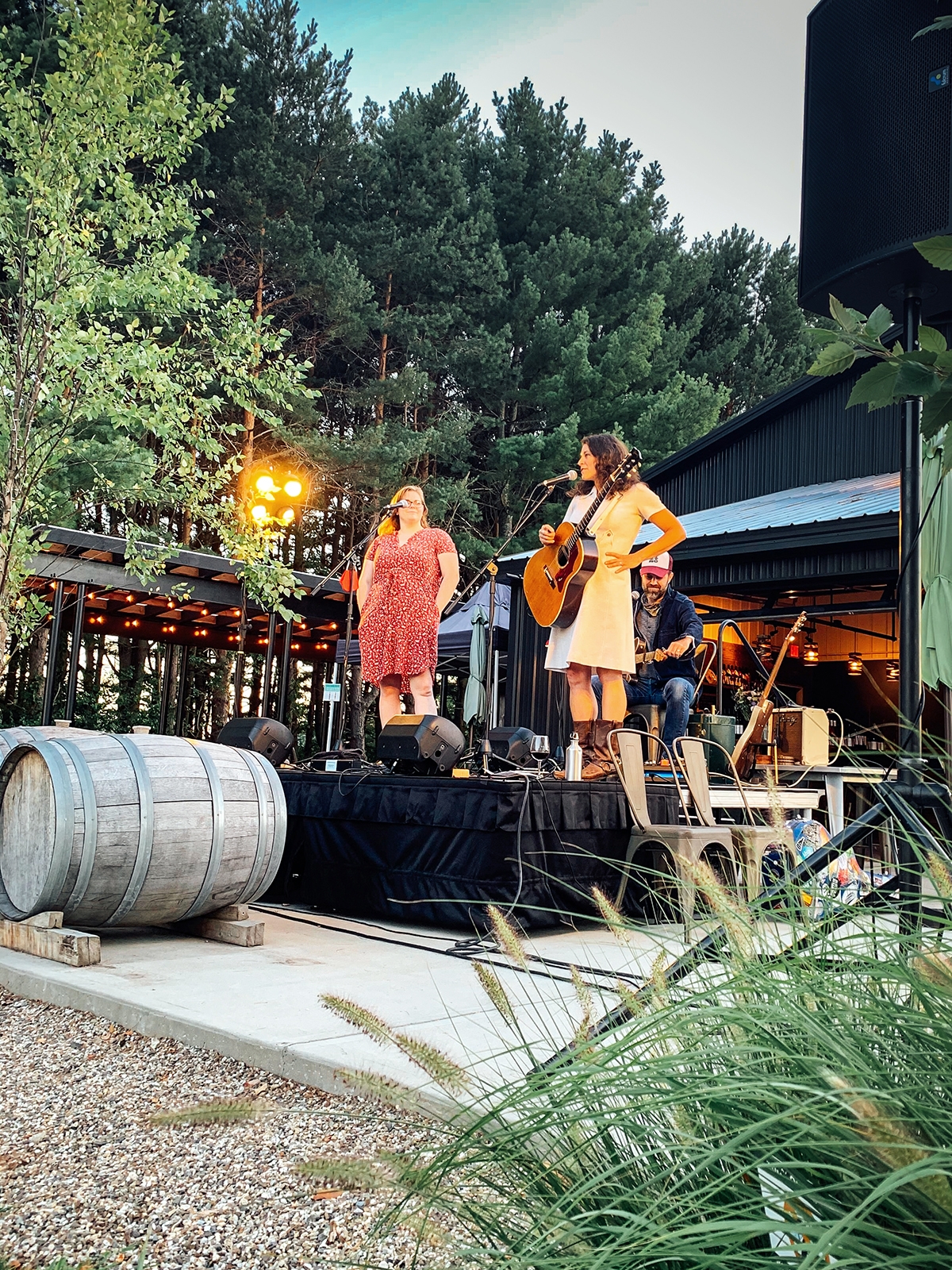
Since she would have spent the past six months in the post-recording, pre-release phase, attending to the business side of things, the COVID era hasn’t constituted a big shift in terms of Delmhorst’s planning. But she is definitely feeling the yearning to bring this new music on the road. Only through touring an album, Delmhorst reveals, playing the songs hundreds of times in all sorts of contexts, does the music really come alive to her. She recognizes that live-streaming sessions offer a service for music fans, one that she is grateful to be able to provide, but she hasn’t gotten to a place yet where she can simply play; the tech-related stress, and the odd isolation of the medium, still creates a degree of self- consciousness that she doesn’t feel in traditional performances.
As to the recent record release event at Black Birch Vineyard in nearby Hatfield, this too was impacted by COVID constraints. Delmhorst had to make do with a skeleton crew of musicians, even pressing Foucault into duty since he counts as part of her household pod. She played half the tracks on the new album, along with songs from her growing catalogue, and the socially-distanced audience was definitely fired up. It was way better than nothing, but she admits that “it felt kind of like a pen-and-ink drawing of an oil painting.” Delmhorst remains convinced about the power and potential of making and sharing music, especially during challenging times.
“Music is a thing that people need,” she says.“It re-opens the doors to expanded layers of consciousness that get shut down day to day.”
This album resonates with questions asked and answered. “Can you tell me there’s light enough, can you tell me there’s love enough, grace enough, to see us through,” Delmhorst sings on “Flower of Forgiveness.” But the answer is clear in the very first track, from which the album takes its name: “No shame in the long game; look around and see that time is all we got.” At a moment in which so much music seems either made at home (extreme lo fi as a statement of authenticity) or massively over- produced (all human agency removed in the quest for seamless pop), Delmhorst’s record manages to thread the needle. Warm without being crowded, virtuosic without being showy, Long Day in the Milky Way reveals an artist at the top of her game. Given what so many have suffered in 2020, Delmhorst also provides hope for better days, a glimpse of light beyond the darkness.

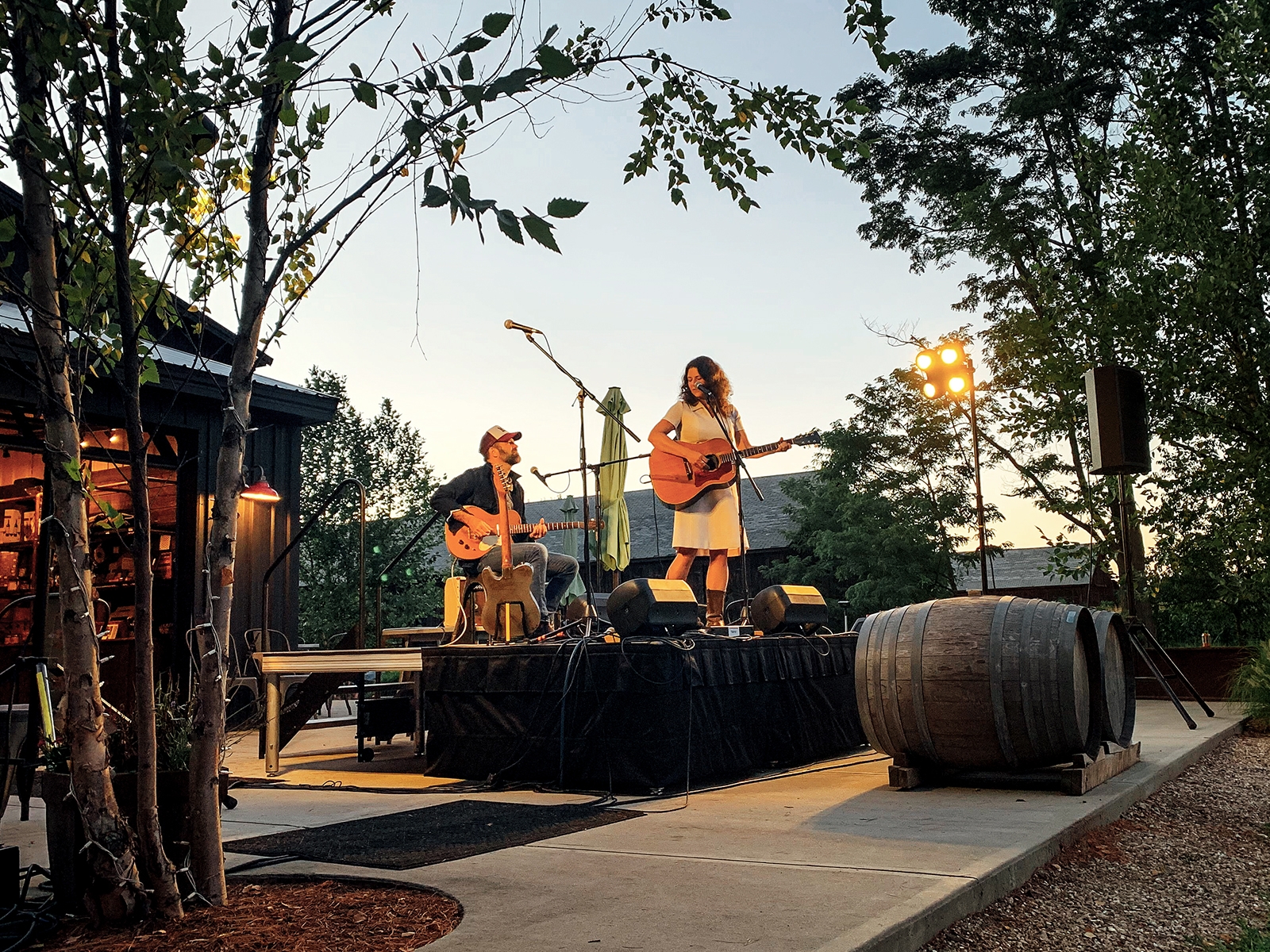
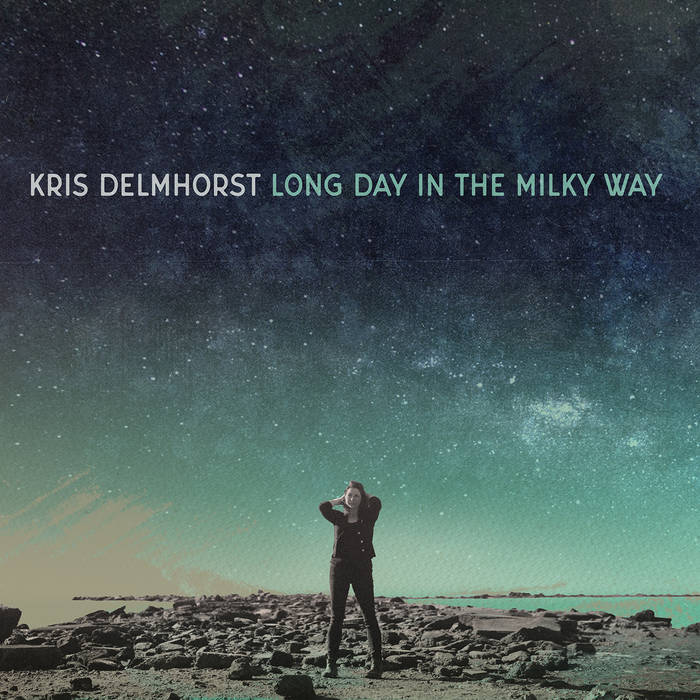


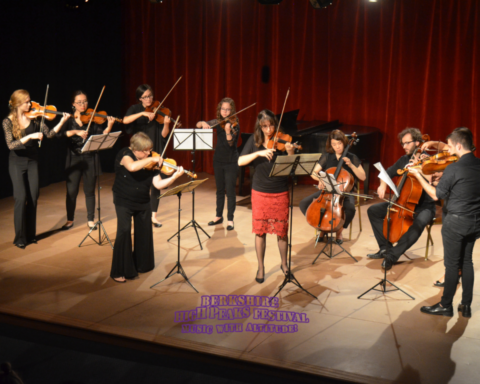
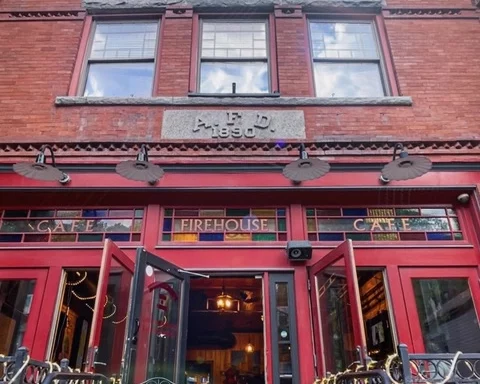

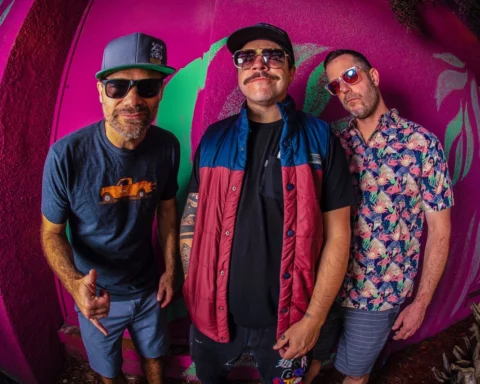
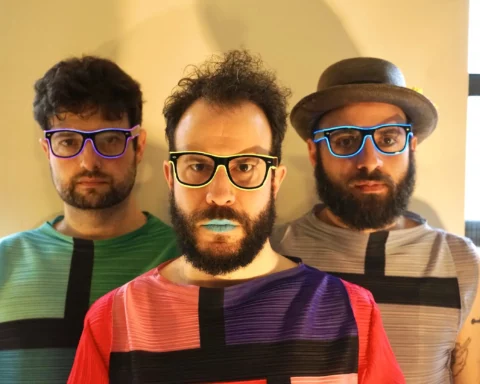









You must be logged in to post a comment.